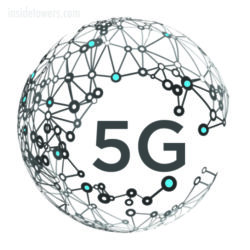T‑Mobile is working with Nokia and British Telecom (BT) has committed to Ericsson to join the private 5G networks market, which is projected by MarketResearch.com to grow at an average rate of 40 percent a year between 2021 and 2028, to $14 billion. The carriers expect private 5G will compete with WiFi, increasing operational efficiencies and accelerating the private sector’s digital transformation.
The BT network will be the first major commercial 5G private network of its kind in the U.K. The 5G private mobile networks and hybrid mobile networks provided by Nokia will be a part of T-Mobile’s newly announced 5G Advanced Network Solutions (ANS), a suite of 5G networks for enterprise and government customers.
Private 5G Versus WiFi
In the U.S., T-Mobile is positioning private 5G networks as an answer to the deficiencies of WiFi networks, including limited coverage, which restricts scalability; limited capacity, which restricts speed and reliability; and limited mobility, which restricts usability. “5G Advanced Network Solutions addresses each of these [deficiencies] head on,” the company said.
Nokia and T-Mobile have been testing 5G in T-Mobile’s 5G Open Innovation Lab and mentoring startups to develop 5G proofs of concept and go-to-market strategies. Nokia has deployed networks to more than 2,200 enterprise customers globally in the transport, energy, large enterprise, manufacturing, webscale, and public sector segments, as well as to more than 450 large private wireless customers across an array of sectors.
In May, T-Mobile collaborated with Dell Technologies, Ericsson and Nokia to deliver 5G ANS to the global racing league SailGP and reduced latency by up to 50 percent compared to WiFi.
“A New Era of Hyper-connected Spaces”
The multi-year contract will enable BT to sell mobile network technology products to companies in sectors such as manufacturing, defense, education, retail, healthcare, transport and logistics. Marc Overton, Managing Director of BT’s Division X, part of its Enterprise business, said the deal will enable businesses’ transformation, ushering in a “new era of hyper-connected spaces.”
“5G private networks will also support smart factory processes and the advancement of Industry 4.0 which can realize significant cost savings and efficiencies for manufacturers,” he said.
BT and Ericsson have already worked together in Belfast Harbor, Northern Ireland, installing a 5G private network across 35 acres of operational port. The partnership is also exploring how 5G and other emerging technologies such as AI, IoT and connected autonomous vehicles can be used together to enhance public safety, physical security and address climate change across the Port and other parts of Belfast City.
By J. Sharpe Smith, Inside Towers Technology Editor





Reader Interactions